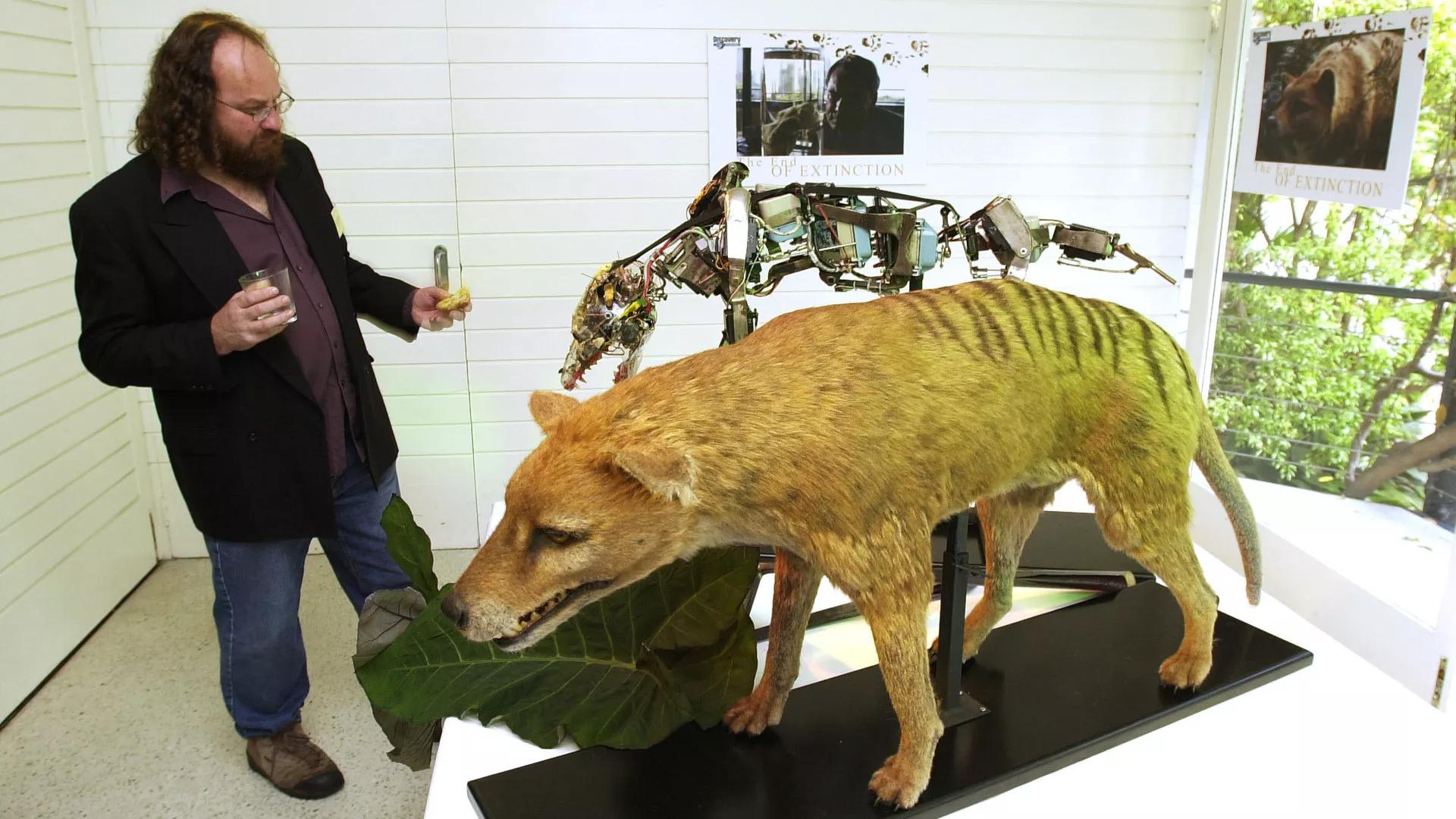Africa-Press – Cape verde. The biotech company Colossal Biosciences first raised $15 million to fund a de-extinction project for the wooly mammoth roughly a year ago in which scientists would recondition Asian elephant skin cells into stem cells carrying mammoth DNA. Despite criticism, the group is now embarking on a project to bring back the Tasmanian tiger.
The biotech company Colossal Biosciences is hiring social media influencers, including former ‘Bachelor’ contestant Kendall Long, ‘Australian Survival’ contestant/model Laura Wells, and ‘Big Brother’ contestant/TV host Nick Uhas, to promote their de-extinction project for the Tasmanian tiger or thylacine. The carnivorous marsupial, which had a dog-like appearance and tiger stripes, was hunted to extinction by humans, with the last of its kind dying in a zoo in 1936.
The social media influencers, who have several thousands to millions of followers across TikTok and Instagram, have been posting information about the extinct creature followed by the hashtag #ColossalPartner.
Colossal also has other famous investors like the Hemsworth brothers, Paris Hilton, and the Winklevoss twins. The company’s move to use social media influencers to promote a scientific project has prompted some to question the Texas-based company, which has amassed an additional $60 million in funding for their de-extinction research.
“A research project is not meant to be a brand. You’re not trying to sell something. So the fact that this has happened should tell us something about research culture, and about how competitive funding has become,” she added. “I can see why Colossal Biosciences might try it; perhaps a media profile will attract more investment.”
Colossal says they plan to take thylacine DNA and splice it into the genome of a close relative, such as a Tasmanian devil, and then take the redesigned nucleus and put it inside the Tasmanian devil’s egg (or a similar carnivorous marsupial) and then implant the embryo into a surrogate Tasmanian devil. Colossal argues that they are trying to bring back extinct creatures as a way to “support the restoration of healthy ecosystems,” as Colossal investor Tom Chi explained.
But some professionals in the science community, such as American biologist and Professor of Biology at Stanford University Paul Ehrlich, have criticized de-extinction projects as “fascinating, but dumb.”
Ehrlich argues that even if the task of species resurrection were feasible, conservation goals would be better reached if the millions of dollars that funded these projects were instead redirected to issues which are causing current wildlife and ecosystems to go extinct and/or collapse such as deforestation, climate change, pollution, and overharvesting, just to name a few.
“De-extinction thus seems far-fetched, financially problematic, and extremely unlikely to succeed on a planet continually being vastly transformed by human action,” he adds.
For More News And Analysis About Cape verde Follow Africa-Press






